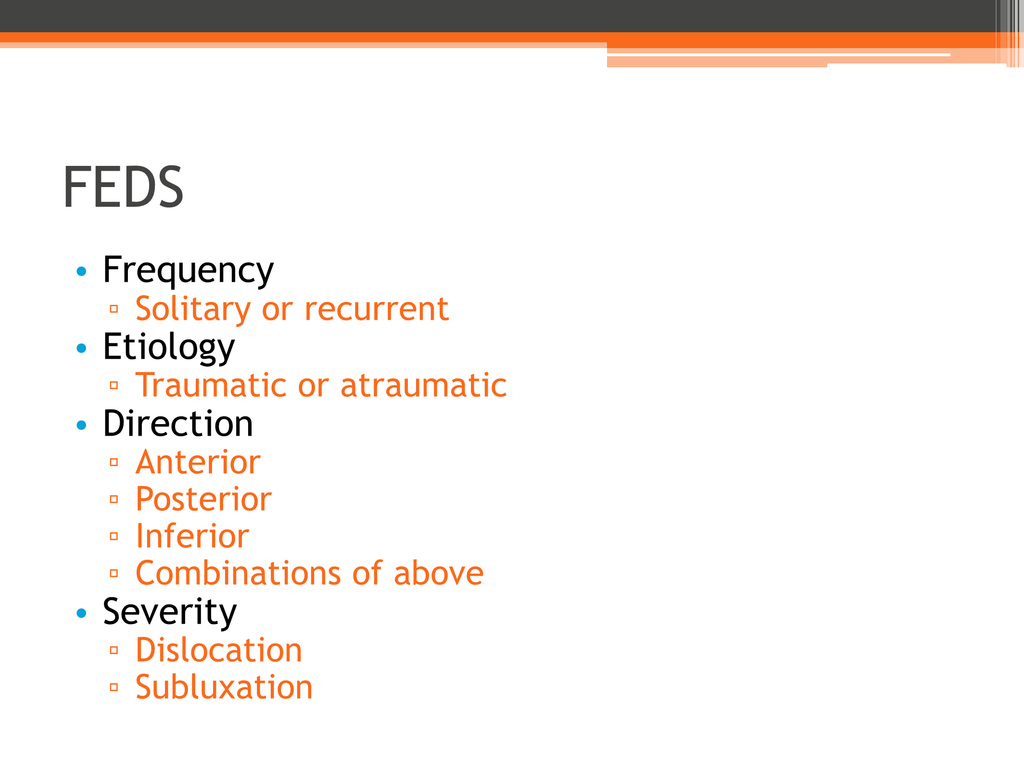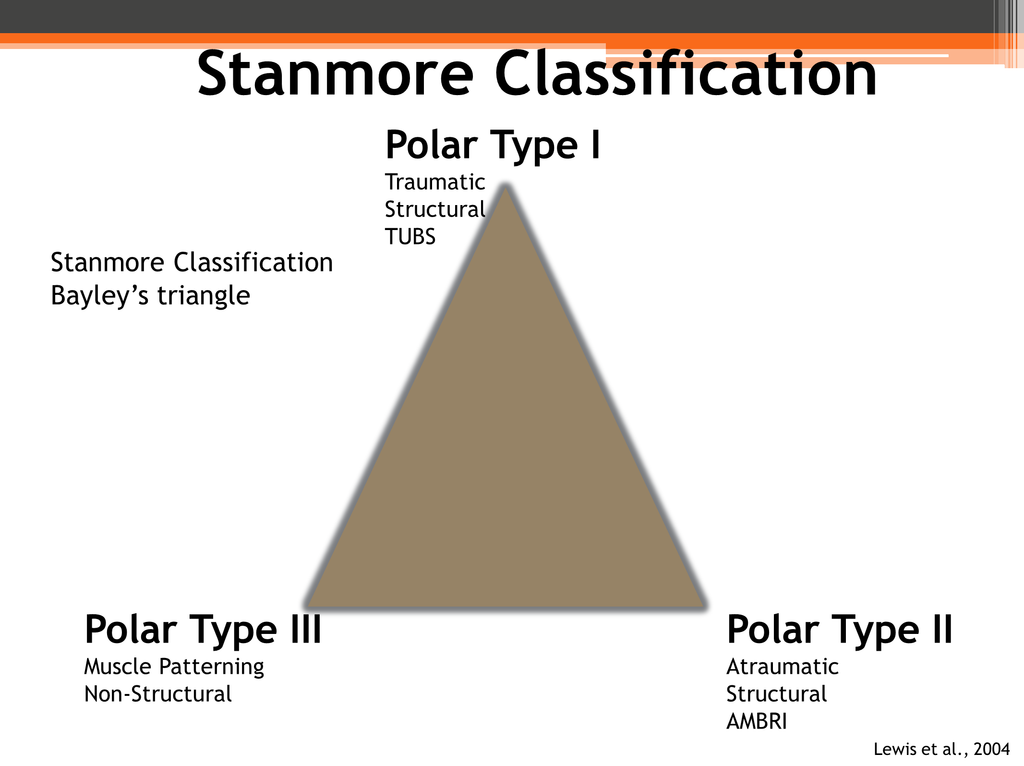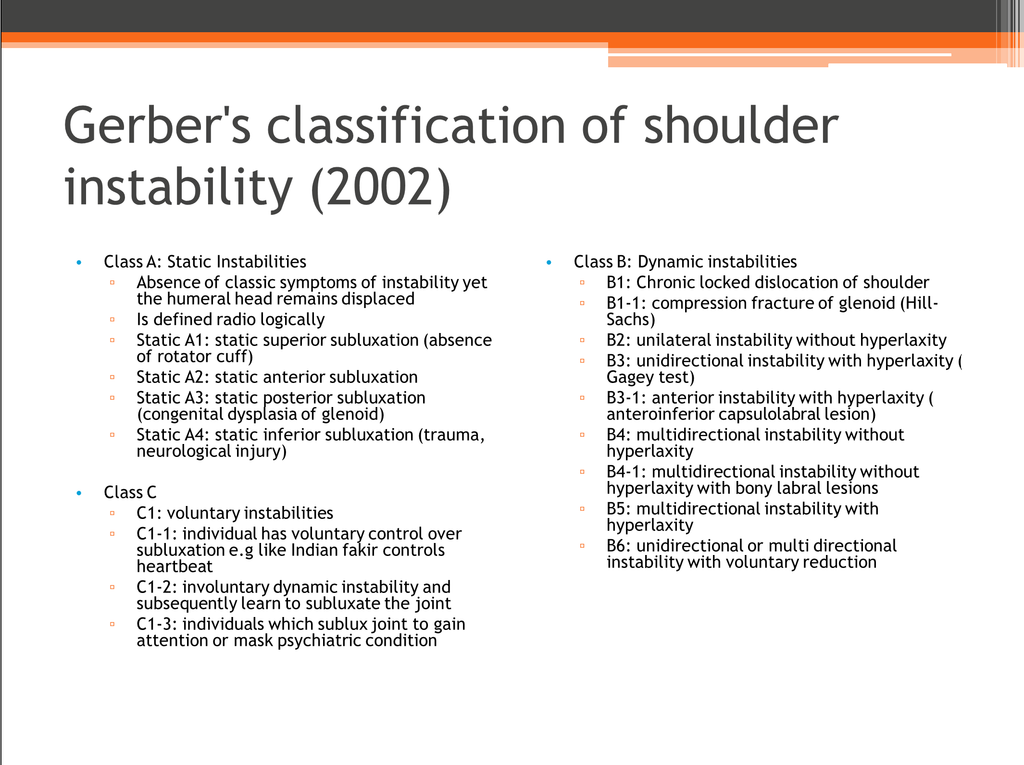Classification of shoulder instability
by Margie Olds
Shoulder instability is classified in different categories. The different types of shoulder instability are treated differently, so it is important for you to know what type of shoulder instability that you have, and what the best treatment is for your type of shoulder instability.
There are three main types of classification systems that have been developed for shoulder instability. The most recent is called the FEDS system and is a useful way to classify shoulder instability. The acronym FEDS stands for Frequency, Etiology (or cause), Direction, and Severity. For more information of the FEDS classification system, check out this page

A common way of classifying shoulder instability in the United Kingdom and Europe is the Stanmore classification system. Essentially this is a triangle of shoulder instability, that includes traumatic dislocations in one direction, dislocations that have occured with no trauma, and instability caused by alterations in muscle patterning.

Finally, the last classification system that can be useful in dertermining types of shoulder instability, was developed by Gerber et al. This type of system classifies shoulder instability broadly into three different categories; 1-those that are static and locked out,2- those that are dynamic, and 3- those that are chronic. This type of system can be very complicated, but it is very useful for determining treatment options in hypermobile patients with and without damage/pathology in the shoulder. To learn more about damage/pathology in shoulder instability, click here






